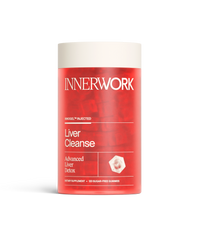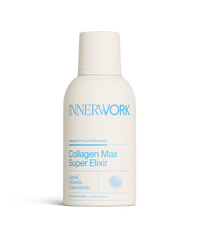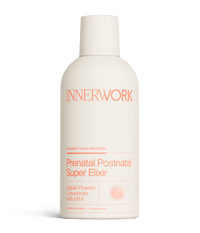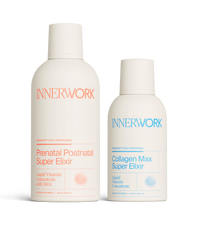The gut is a complex ecosystem hosting trillions of microorganisms, all working in concert to maintain optimal body function. Collagen forms a substantial part of this ecosystem, comprising about 90% of the proteins in the connective tissue of the gut wall. It provides structure and strength to the intestinal lining, actively participating in repairing and regenerating the gut lining.
Collagen's role in addressing leaky gut syndrome is particularly noteworthy. This condition, characterized by increased intestinal permeability, can be mitigated by collagen. The amino acids in collagen, especially glycine, help seal the junctions in the intestinal lining, potentially reducing permeability issues.
Inflammation in the gut is another area where collagen demonstrates its efficacy. Studies have shown that glycine, an amino acid abundant in collagen, possesses potent anti-inflammatory properties. Additionally, collagen aids in the production of butyrate, a short-chain fatty acid that nourishes beneficial gut bacteria and further reduces inflammation.
Collagen's benefits extend to stomach health as well. It forms a protective layer in the stomach, shielding it from the corrosive effects of stomach acid. Furthermore, collagen helps regulate stomach acid production, contributing to overall digestive balance.
The gut-brain axis, a communication system between the digestive tract and the brain, is another area influenced by collagen. Glycine, found in collagen, acts as a neurotransmitter that helps regulate brain function. The health of the gut lining, which collagen helps maintain, directly impacts the production of neurotransmitters like serotonin, predominantly produced in the gut.
Research suggests that collagen peptides may help modulate the immune response in the gut, potentially reducing the risk of autoimmune reactions. This immunomodulatory effect adds another dimension to collagen's role in gut health.
The impact of collagen on gut health extends beyond digestion. A healthy gut is linked to improved immune function, better mood regulation, and enhanced skin health. With over 90% of serotonin produced in the gut, maintaining a healthy digestive system can significantly affect mental well-being.
While collagen can be a powerful tool in supporting gut health, it should be part of a broader strategy that includes a balanced diet, adequate hydration, and other gut-supportive practices. Regular consumption of collagen, combined with a diet rich in fiber, fermented foods, and anti-inflammatory nutrients, can significantly enhance digestive function and overall gut integrity.
In conclusion, collagen's role in gut health is multifaceted and profound. From strengthening the gut lining to supporting digestion and fostering a balanced microbiome, collagen offers benefits that extend far beyond its commonly known effects on skin health. For those seeking to optimize their gut health, incorporating a high-quality collagen supplement, such as Innerwork's Collagen Max Super Elixir, could significantly contribute to digestive wellness and overall health.
References:
[1] Graham, M. F., et al. (1988). Collagen synthesis by human intestinal smooth muscle cells in culture. Gastroenterology, 94(2), 346-351.
[2] Mu, Q., et al. (2017). Leaky Gut As a Danger Signal for Autoimmune Diseases. Frontiers in Immunology, 8, 598.
[3] Chen, Q., et al. (2017). Collagen peptides ameliorate intestinal epithelial barrier dysfunction in immunostimulatory Caco-2 cell monolayers via enhancing tight junctions. Food & Function, 8(3), 1144-1151.
[4] Li, P., & Wu, G. (2018). Roles of dietary glycine, proline, and hydroxyproline in collagen synthesis and animal growth. Amino Acids, 50(1), 29-38.
[5] Koppel, N., et al. (2017). Chemical transformation of xenobiotics by the human gut microbiota. Science, 356(6344), eaag2770.
[6] Tariq, M., et al. (1997). Gastric anti-ulcer and cytoprotective effect of l-serine in rats. Journal of Pharmacy and Pharmacology, 49(11), 1116-1121.
[7] Baba, H., et al. (2017). Glycine therapy inhibits the progression of gastric cancer. Oncology Reports, 37(3), 1729-1736.
[8] Carabotti, M., et al. (2015). The gut-brain axis: interactions between enteric microbiota, central and enteric nervous systems. Annals of Gastroenterology, 28(2), 203-209.
[9] Bannai, M., & Kawai, N. (2012). New therapeutic strategy for amino acid medicine: glycine improves the quality of sleep. Journal of Pharmacological Sciences, 118(2), 145-148.
[10] Yano, J. M., et al. (2015). Indigenous bacteria from the gut microbiota regulate host serotonin biosynthesis. Cell, 161(2), 264-276.
[11] Chen, Q., et al. (2017). Collagen peptides ameliorate intestinal epithelial barrier dysfunction in immunostimulatory Caco-2 cell monolayers via enhancing tight junctions. Food & Function, 8(3), 1144-1151.







